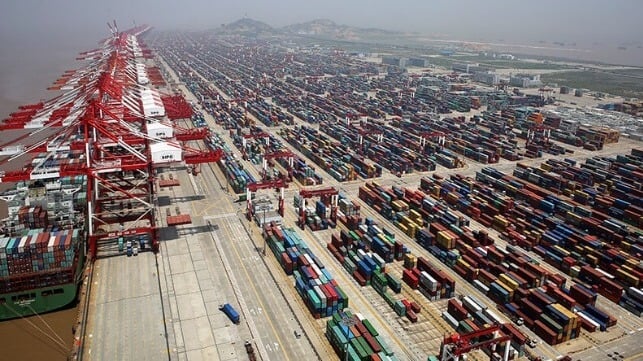Asian Ports Top World Bank Rankings While Many Large Ports Rank Lower

The World Bank is out with its latest port ranking and predictably ports in Southeast Asia continue to dominate the top of the ranks, but some of the world’s largest container ports, and most in the U.S., ranked far lower. The Container Port Performance Index they say is designed to pinpoint areas for enhancement while citing the critical role containers play in global commerce.
Looking at the top-performing ports, China’s Yangshan Port (Shanghai) earned the top spot for the second consecutive year, while Oman’s Port of Salalah retained the number two position and Tanger-Mediterranean in Morocco held steady in fourth. The port of Cartagena in Colombia rose to third and throughout the listing, some ports showed strong improvements. Tanjung Pelepas Port in Malaysia rounded out the top five.
At the bottom of the list, which grew with 57 new entrants overall, remains Cape Town, which was in last place at number 405 with South Africa’s Ngqura port at 404. Durban did not fare much better coming in at 398, but possibly more surprisingly Savannah (Georgia) was number 395, Oakland (California) at 397, and Prince Rupert (Canada) at 399. Major U.S. ports did not rank higher with Long Beach at 373 and Los Angeles at 375. Overall, U.S. ports failed to break the top 50, with Charleston highest (53), and followed by other regional ports including Philadelphia, Port Everglades, Miami, Boston, Wilmington (North Carolina), before reaching New York, the U.S.’s third-largest port, which ranked 92.
“While the challenges caused by the COVID-19 pandemic and its aftermath eased further in 2023, container shipping continues to be an unpredictable and volatile sector,” said Martin Humphreys, Lead Transport Economist at the World Bank. “Major ports need to invest in resilience, new technology, and green infrastructure to ensure the stability of global markets and the sustainability of the shipping industry.”
The World Bank says the report aims to aid in identifying areas for enhancement that would benefit not only the shipping lines but also national governments and consumers. They highlight that ports and terminals can cause shipping delays, disruptions in the supply chain, additional expenses, and reduced competitiveness.
Among the largest container ports outside China, Singapore ranks best (17). Antwerp is 76, Rotterdam 91, Hamburg 121, and Felixstowe 182.
“Efficient high-quality port infrastructure can facilitate investment in production and distribution systems, engender expansion of manufacturing and logistics, create employment opportunities, and raise income levels,” they assert in the 92-page report. They believe that efficient container ports are vital and have become a prerequisite for successful export-led growth strategies.

that matters most
Get the latest maritime news delivered to your inbox daily.
The report applies two criteria and requires at least 24 port calls within 12 months. It uses both a technical analysis with statistics as well as a pragmatic methodology adding in expert knowledge and a level of judgement. They said this ensures it reflects actual port performance while being statically based.
The data included an analysis of 182,000 vessel calls, 238. Million moves, and approximately 381 million TEUs. One hundred ports improved their ranking. In some cases, the largest moves improved by over 200 places in the ranking. They did not state how many ports declining in the rankings.
